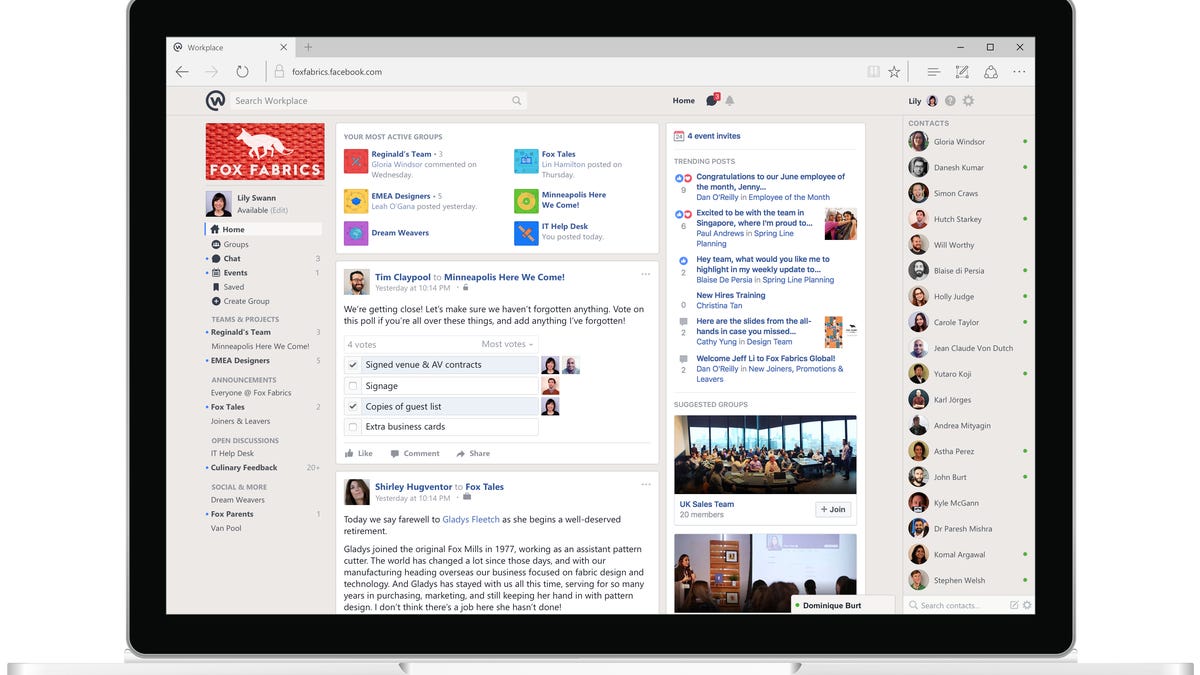Facebook Workplace aims to beat Slack, rule your office
Slack wanted to replace work email, and now Facebook wants to replace Slack. Let the battle of the office chat rooms begin.

If you're not already using Facebook regularly in the office, you might soon find your boss insisting upon it.
Facebook officially launched Workplace, a work-based collaboration and chatroom platform, on Monday at an event in London.
Workplace by Facebook is designed solely for the kind of interactions you might have with your colleagues, as well as those that take place with clients, agencies or partners.
It looks and feels like the Facebook you already know. Workplace has 90 percent of the features from Facebook -- things like walls, groups, reactions and a News Feed -- but it isn't linked to your personal account for the social network. It also has additional tools including one-to-one video calling in high definition and conference audio calling.
"We already use tech to make our personal lives easier," said Nicola Mendelsohn, Facebook's vice president of Europe, the Middle East and Africa, at the launch event. "It's high time that we put that same kind of power towards business."
Workplace is designed to get Facebook onto even more screens. It's also the first time the company has launched its own mass-market platform that's separate from its core social network . It bought standalone services WhatsApp and Instagram . First unveiled under the name Facebook at Work back in January 2015, the Workplace project has been in beta testing for a year and a half, and already has 1,000 companies using it with more than 100,000 groups.
A rival to the likes of Slack, a cloud-based collaboration system launched in 2013 and used in offices all over the world, Workplace is designed to be the online office that makes it easier for teams to work together no matter where they are based or what they working on. The success of Slack, which boasts more than 3 million daily users at last count, shows there is huge demand for such a service. The challenge for Facebook now is to tap into it.
The company plans to do this through its pricing structure, which significantly undercuts the paid version of Slack, which costs $6.67 per user per month. (Slack also has a simple freemium version for companies wanting to try out the basic service.) Workplace starts at $3 per user per month, but can go down to as little as $1 if enough employees jump on. Companies also won't be charged for employees that aren't actively using the service.
The relatively low price of the service shows that Facebook is making it a priority to get people adopting and engaging with Workplace, rather than focusing on revenue straight off the bat. It's a strategy that's worked well before, both for the company's social network and for Instagram, where it secured a large and loyal audience before it started to bring in ads.
Facebook Workplace will be available immediately to all companies and organizations globally, with the multi-company group feature set to be added in the coming weeks.

